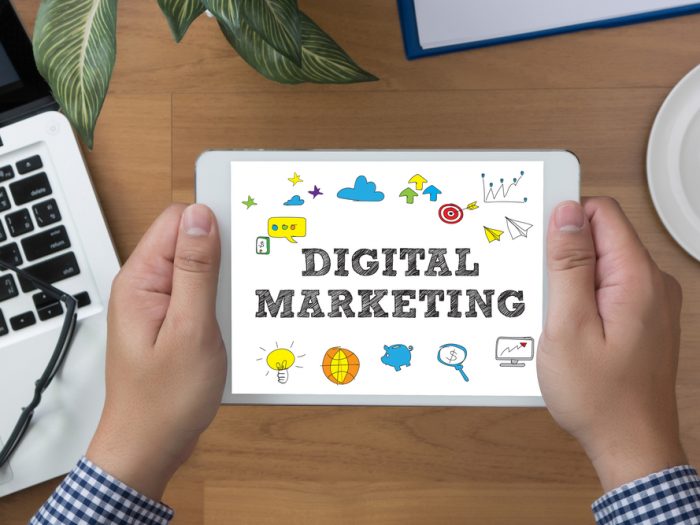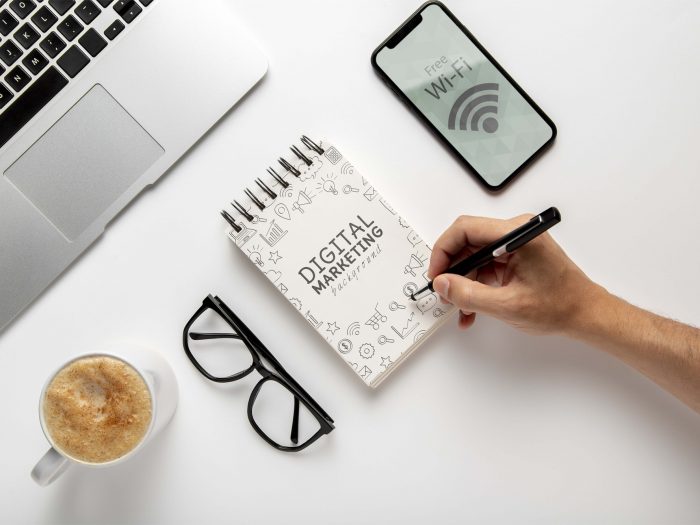Let’s face it, we all yearn to fly. There’s no denying that the tourism industry has seen better days, particularly with travel restrictions still in place. However, as one of the most profitable sectors in the world, the tourism industry has chosen to remain unaffected by the recent economic downturn.
In today’s tech-focused age, the importance of digital marketing for businesses has boomed, and the travel and tourism sector shouldn’t let the opportunity slip away. In fact, plenty of companies are already prepping for the travel surge that may happen when the world is safe to reopen.
Why digital marketing matters now more than ever
Some in the tourism sector may wonder why it’s worth investing in marketing while borders are closed, and travel is restricted. The primary reason is the fact that most shoppers—including earnest travellers—have moved their shopping online while confined at home. This in turn makes online marketing more relevant than ever for all industries, including tourism.
According to thinkwithgoogle.com, 31% surveyed in the report have plans to go back to travelling for leisure once they feel safe enough to do so. Despite the decrease in travel-related purchases, people are still showing interest in travel even now. Those who have spent time away from family, friends, and loved ones are also looking to rekindle connections, and some are waiting for the time when they can once again revisit their favourite places, and discover new ones.
The tourism industry hasn’t lost its lustre because there’s so much money to be made. It’s also sparked a desire to fly, which will keep the industry competitive and profitable. There has never been a better time for businesses to introduce cutting-edge digital marketing tactics to sell the ultimate travel experience.
Want to know how? Read on, as we share top tips on how your business can take your marketing campaign to the next level in a post covid-19 marketplace.
Digital Marketing Strategies for the Tourism Sector
1. Maintain a high level of meaningful participation
We all know how important social media is to the success of your marketing campaigns. It’s without a doubt the case. You want to concentrate on positive interaction as you create your brand on social media sites like Facebook, Instagram, YouTube, and Pinterest.
It’s not enough to be on social media; you must create a purposeful social presence if you want to get noticed. The simplest way to start is by responding to user comments and inquiries that deal with consumers’ health and safety concerns during travel. This is a great time to reassure interested future travellers on the added safety protocols you’ve set in place as you open doors for customers once again.
Better yet, consider creating a dedicated section or page on your website just for Covid-19 related matters, so you can effectively raise awareness about them. Here, you can provide valuable information on local government regulations to educate and inspire potential consumers, while also drawing more traffic to your website.
2. Rewire the customer journey
People aren’t currently browsing travel pictures to book a vacation right then and there, so you need to re-evaluate the customer journey with these changes in mind.
To do this, you’ll need to put yourself in the shoes of your target persona to create an effective marketing strategy, reallocate your marketing spend to more appropriate channels, and alter campaign messaging where relevant. With deeper insight on the travel customer journey, you can guide prospective travellers into your sales funnel much more.
3. Partner with influencers to boost appeal
There’s power in tapping the right digital influencers, but you must choose the ones that truly reflect your brand. Apart from paid ad campaigns, your company can work with digital influencers that have built engaged audiences organically to increase brand awareness. Working with affiliates can help your brand gain the trust of many, if you associate your brand with the image of the right influencer.
Additionally, working with influencers can prove to be a lucrative addition to boost interest in your brand and increase your reach. Take Taika Waititi, for example, who quarantined in a freshly opened boutique hotel in Ponsonby, increasing brand awareness and prompting several published independent news-article reviews (which are valuable third-party content!) and customer bookings.
4. Craft a relatable narrative
Beyond just leveraging visual media to add an aspirational element to your marketing strategy, you can also persuade your audience through creative narratives or stories. Explore creative ways to present your narrative and develop content that will generate a sizable amount of traffic, allowing your audience to visualise themselves in their ideal travel scenario. Invest in content marketing, such as crafting engaging blogs and providing valuable information, while implementing SEO best practices.
5. Leverage email marketing
Never underestimate marketing to your email list! Email marketing is still an effective method of increasing your click-through rates. No matter how obsolete some marketers believe it to be, it grants you direct contact to a huge number of potential customers.
Sharing your marketing campaigns, recommendations, and information of interest through email can invite, inspire, and motivate users to action.
6. Invest in search engine optimization
There’s no such thing as a bad time to further your search engine optimization efforts. SEO takes at least three to six months to produce significant results, which should be enough time for countries to administer the vaccine and decide if it is successful enough to make travel safe.
The truth is, as soon as the door to international travel creaks open just a little, there will be a surge of competition on a variety of marketing platforms—from digital billboards all the way to YouTube ads. You can take advantage of the long-term nature of SEO to ensure your website ranks well for your desired terms, so you don’t miss the opportunity as soon as it arises.
What does travel currently look like in London?
Kiwis are already making the most of the summer by extensively travelling domestically, as reported by a Flight Centre NZ survey that appeared in Newshub. In fact, many of us are purchasing package deals with flights, accommodation, and sightseeing all in one!
Below are some more interesting statistics from the survey:
- 43 percent of respondents would like a beach holiday.
- Around 30 percent would like to visit friends and family.
- 71 percent said they plan to book with a travel agent.
- Top travel destinations: Australia, Fiji and Cook Islands, Thailand and Vietnam, Singapore, Dubai, UK, India, and South Africa.
So, whether your market is the humble domestic traveller or the budding globetrotter, it pays to capture your market online and sustain interest through a variety of digital marketing efforts so you can convert customers now and later!
Supercharge your digital marketing efforts with Finsbury Media!
Since we’re all using online tools to help us make choices now more than ever, the tourism industry relies heavily on digital marketing to attract more consumers. However, given the current state of many tourism companies, company owners are remaining frugal when it comes to investing money on digital marketing.
Fortunately, Finsbury Media will assist you. We’ve also assisted a number of companies in taking advantage of the free instruction. Take advantage of the post-crisis recovery period by allowing us to assist you in strengthening your digital marketing strategy.




